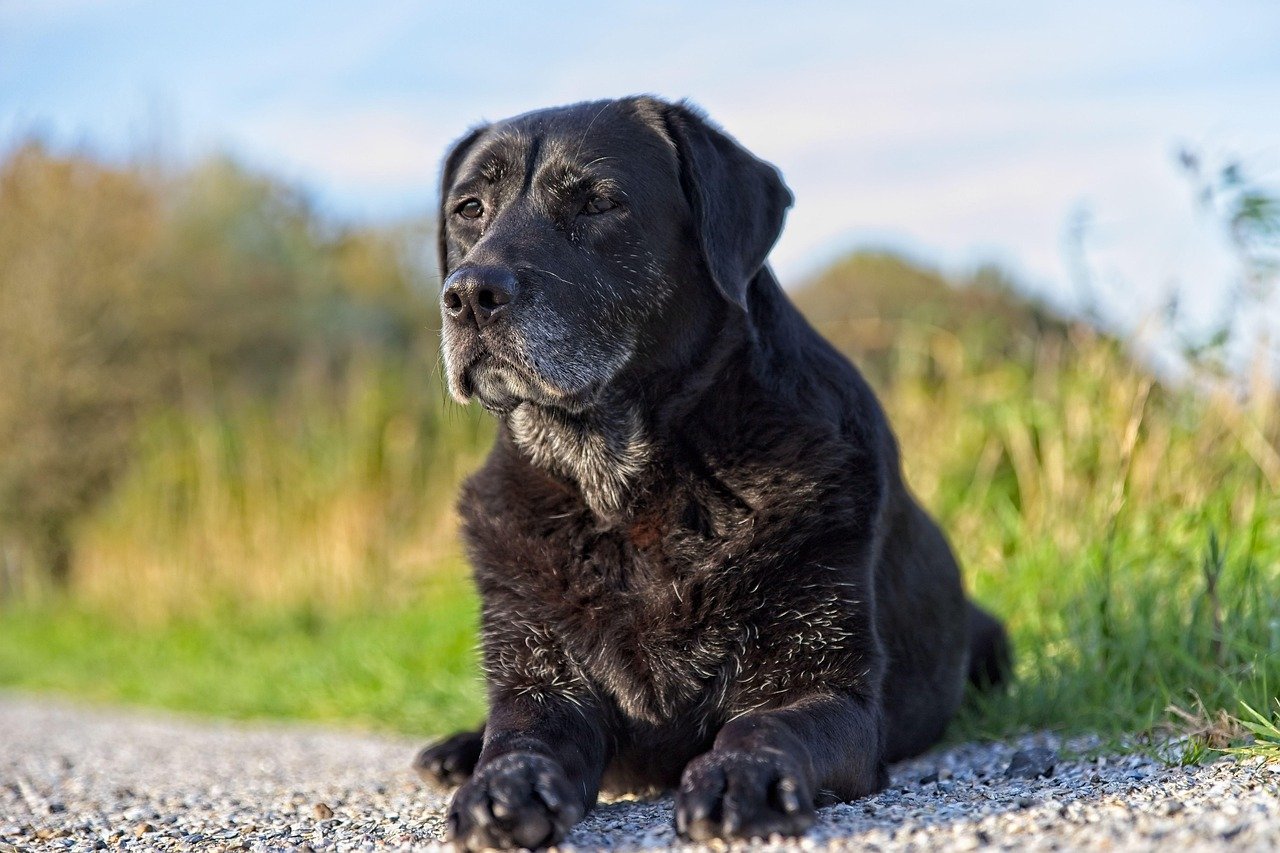Your furry best friend has given you countless years of unconditional love, endless tail wags, and those heart-melting eyes that could forgive anything. Now that they’re entering their golden years, it’s time to return the favor. Senior dogs don’t ask for much – they just want to feel comfortable, loved, and valued as they navigate the changes that come with aging. Here are ten simple gestures that will make your older companion’s tail wag with pure gratitude.
An Orthopedic Bed That Actually Supports Their Joints

Your dog’s old bed might look fine to you, but imagine sleeping on a saggy mattress every night when your bones ache. An orthopedic dog bed is designed to provide optimal support and comfort to dogs, particularly those suffering from joint pain or other orthopedic issues. These beds are typically made from high-quality memory foam or other supportive materials that contour to the dog’s body, relieving pressure points and distributing weight evenly.
Providing an orthopedic dog bed for your senior pet is a great idea to promote comfort. Since older pets tend to spend more time lying down, these beds provide additional support for their joints and prevent pressure sores on their elbows and legs. Think of it as giving them their own personal cloud that actually knows where their joints hurt. Your senior dog will wake up feeling refreshed instead of struggling to get their stiff legs moving.
Regular Vet Checkups Every Six Months
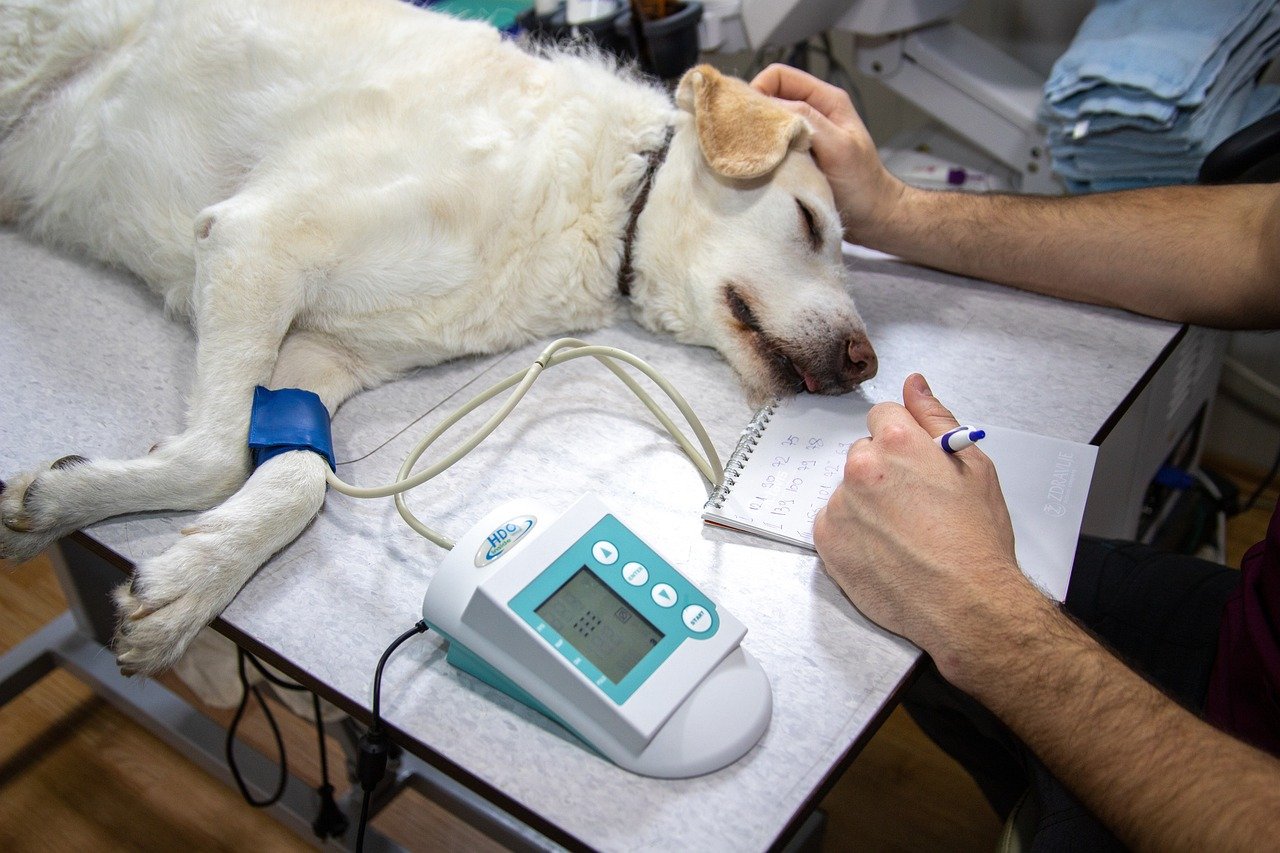
While your young pup might have needed annual checkups, senior dogs require more frequent attention. Twice-yearly veterinary checkups are essential for senior pets. Because their health status can change rapidly, it is important for a veterinarian to assess your pet every six months.
Early detection of chronic diseases such as kidney disease, thyroid disease, and diabetes is the key to successful treatment and preservation of quality of life. Think of these visits as your dog’s insurance policy against the sneaky health issues that love to creep up on older pets. Your vet can catch problems before they become painful or expensive to treat.
A Consistent Daily Routine
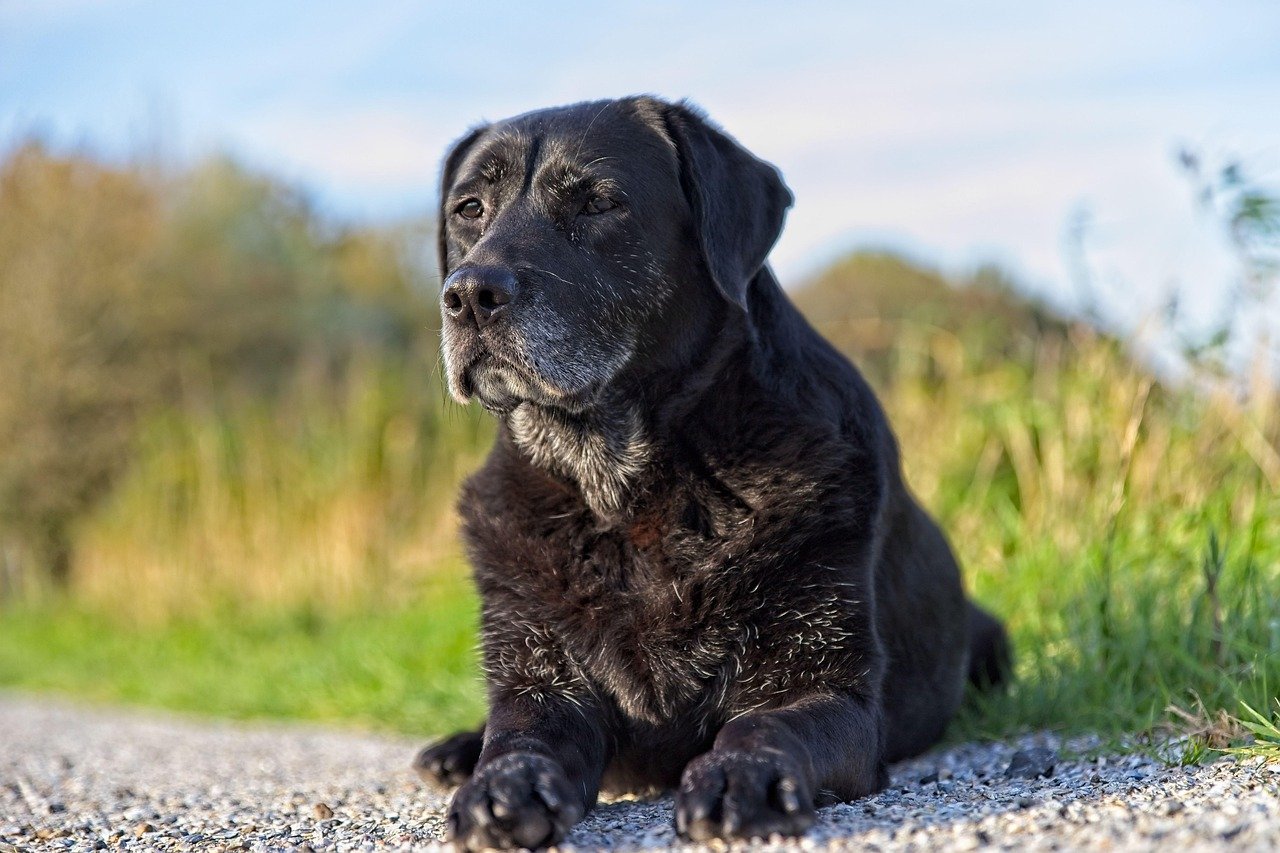
Sticking to a consistent schedule for feedings, walks, and playtime can help reduce stress levels and increase feelings of safety. Senior dogs find comfort in predictability – they’ve earned the right to know exactly when dinner is coming and when their favorite walk will happen.
Establishing a consistent routine is crucial for senior dogs. A predictable schedule helps reduce anxiety, provides structure, and ensures they receive regular physical and mental stimulation. It’s like giving them a reliable framework for their day, which becomes even more important as their world might be getting a bit more confusing due to cognitive changes.
Mental Stimulation Games and Puzzles

Just because their legs might be slower doesn’t mean their brain wants to retire. Mental stimulation is a powerful tool for maintaining and enhancing cognitive health in senior dogs. Engaging your dog’s mind can slow cognitive decline, keep them mentally alert, and provide a valuable source of entertainment.
Interactive toys and games are a fantastic way to provide mental stimulation. Puzzle toys that dispense treats can keep your dog engaged as they figure out how to retrieve the reward. Even a simple game of hiding treats around the house can turn into an exciting treasure hunt that keeps their nose working and their mind sharp.
Gentle Exercise Tailored to Their Abilities
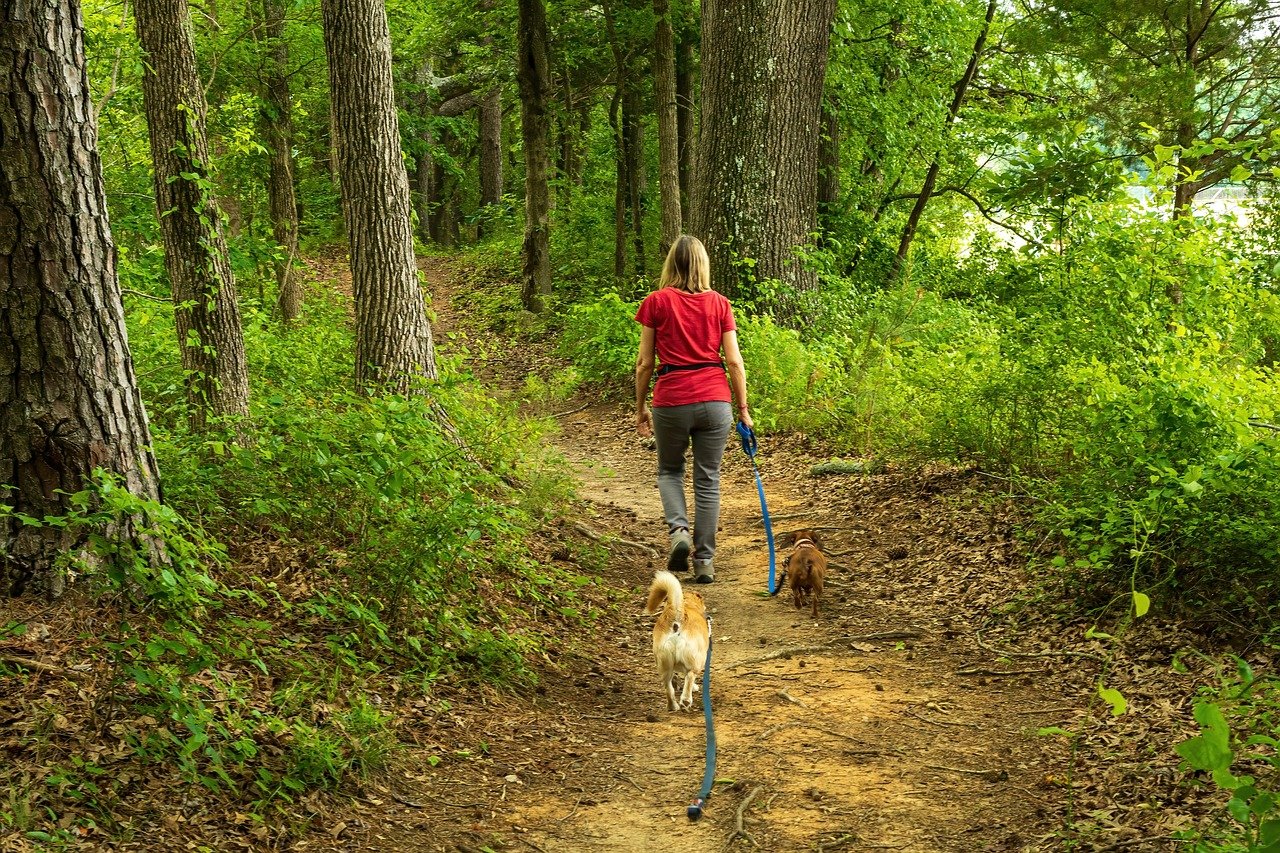
If you were to give older dogs a choice, they would likely skip jogging marathons and mountain hikes. But increasing age doesn’t have to mean decreasing activity. Senior dogs still want to play games, get exercise, and go out to sniff the world every day. Even if they need a little encouragement, it’s important to keep up their strength and muscle tone.
Walking helps control weight, promotes healthy joint motion, can aid in digestion, and provides physical and mental stimulation. The key is letting them set the pace. If they want to sniff that fire hydrant for five minutes, let them – it’s their version of reading the morning newspaper.
Temperature Control and Climate Comfort

As our dogs age and their bodies change, they become more sensitive to outside conditions. Senior dogs, regardless of breed, are more susceptible to hot and cold weather, so make sure you’re able to keep them cool during summer and warm during winter.
Many orthopedic dog beds come with temperature-regulating features. These beds can keep your dog warm during the colder months and cool during the summer, ensuring they remain comfortable year-round. This is particularly important for senior dogs, who may have difficulty regulating their body temperature. An extra blanket in winter or a cooling mat in summer shows you understand their changing needs.
Patience with Their Changing Bathroom Needs
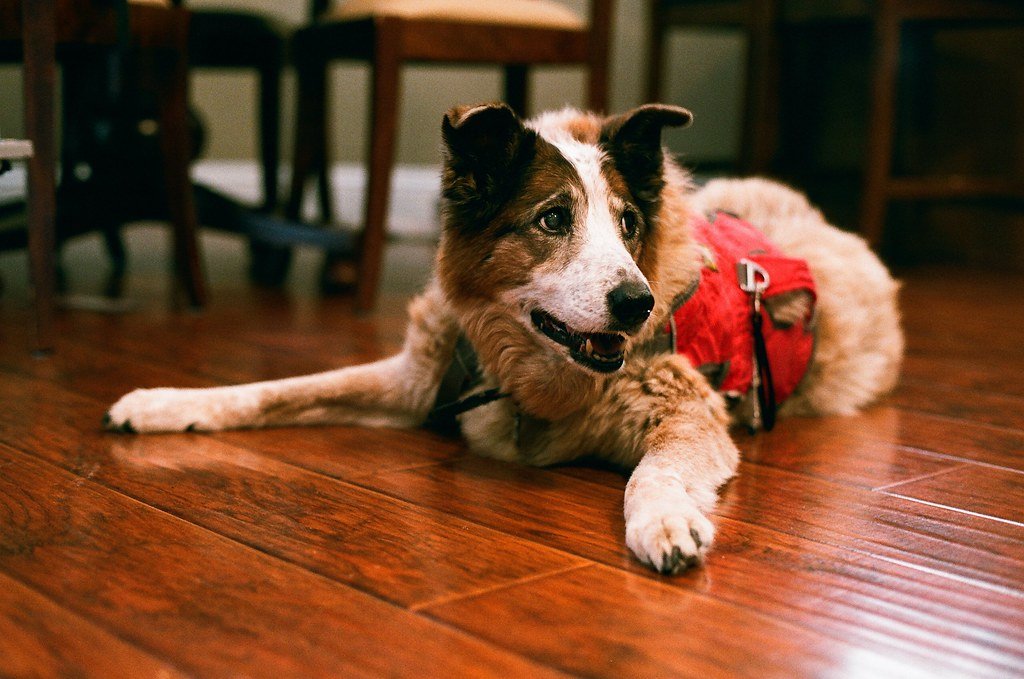
Accidents happen, and they’re not trying to be difficult. While incontinence can affect dogs of any age, it’s most common in older female dogs. This can happen when their ability to regulate the opening of the bladder reduces. When the bladder opening does not securely close, urine can leak.
Your understanding and preparation for these changes – maybe with washable rugs or more frequent potty breaks – shows them they’re still your good dog, even when their body isn’t cooperating perfectly. Consider it part of the natural aging process, just like how you might need more bathroom breaks during a long movie.
Quality Time and Gentle Affection

Never underestimate the power of love and affection. Regular cuddles, petting, and positive interactions can boost your dog’s mood and contribute to their mental well-being. These simple acts of love can provide comfort, reduce anxiety, and strengthen the bond between you and your dog.
After all, every dog adores love and attention, especially seniors. They might not bound up to you like they used to, but those gentle moments of connection – a hand resting on their head while you watch TV, or quiet conversations during their grooming – mean everything to them.
Accommodations for Mobility Challenges

If your pet is permitted on the bed or couch, place steps in front of the furniture to help them get up without the need to jump. Even easier for your pet is a ramp that allows them to get to higher areas like furniture, in and out of a vehicle, and up and down stairs.
As dogs age, they may hesitate to walk on wood or vinyl floors as they can lose their footing. Adding anti-slip rugs or yoga mats to floors can help provide a non-slip surface. These small modifications to your home environment can make the difference between your dog feeling confident or fearful about moving around their own territory.
Proper Nutrition for Their Changing Needs
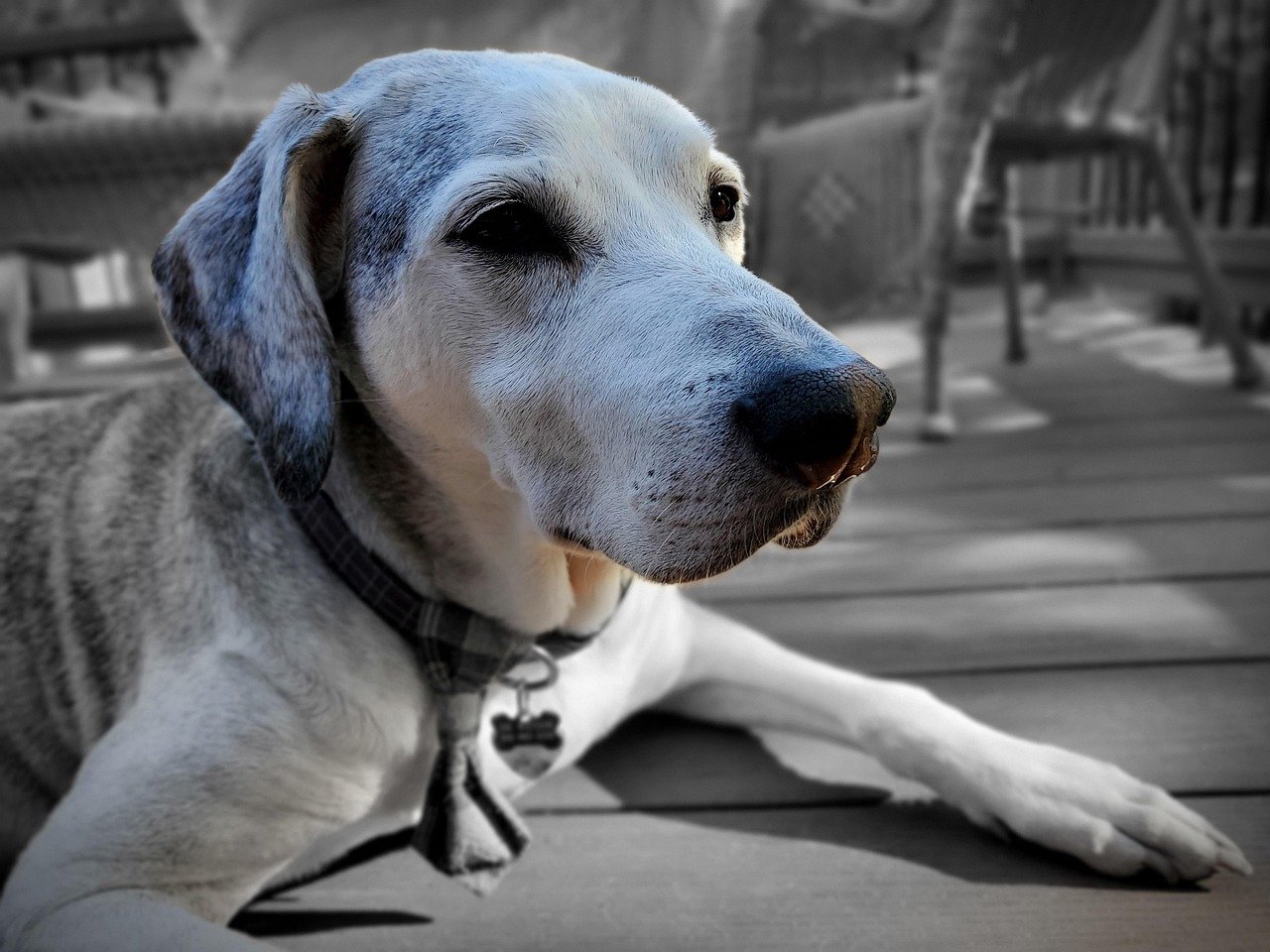
Senior dogs have different nutritional requirements than other life stages. For example, older dogs are less active so need fewer calories. Overfeeding leads to obesity which burdens aging joints and can lead to other health concerns.
Or consider switching to wet food. The higher water content is good for the kidneys and its softer texture is easier on aging teeth. Think of it as transitioning from tough steak to a perfectly cooked pot roast – still delicious, but much easier to enjoy. Your dog’s digestive system will thank you for making meals both nutritious and comfortable.
Conclusion

These simple acts of love and consideration don’t require expensive equipment or dramatic lifestyle changes. They’re about recognizing that your faithful companion’s needs have evolved and showing them that their comfort and happiness remain your priority. Senior dogs have a special wisdom about what truly matters – warmth, comfort, routine, and love.
Remember, the dog who once protected your home, celebrated your returns, and comforted you during tough times is still that same loving soul, just in a more mature package. By making these small adjustments to their daily life, you’re not just caring for a pet – you’re honoring a friendship that has enriched your life for years.
What would you have guessed was the most important thing to your senior dog – was it something on this list, or did their grateful eyes tell you it was something else entirely?

Andrew Alpin from India is the Brand Manager of Doggo digest. Andrew is an experienced content specialist and social media manager with a passion for writing. His forte includes health and wellness, Travel, Animals, and Nature. A nature nomad, Andrew is obsessed with mountains and loves high-altitude trekking. He has been on several Himalayan treks in India including the Everest Base Camp in Nepal.

